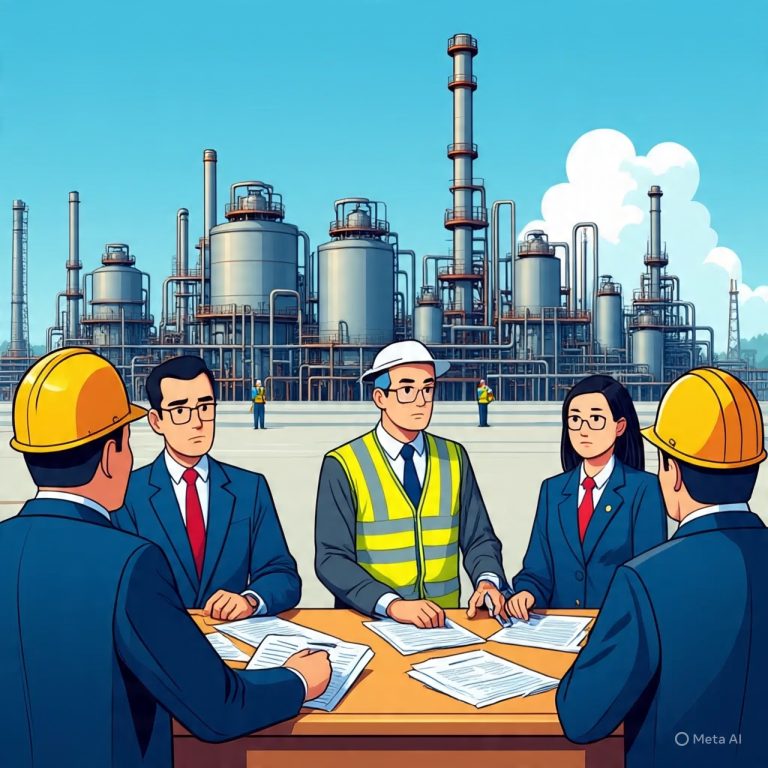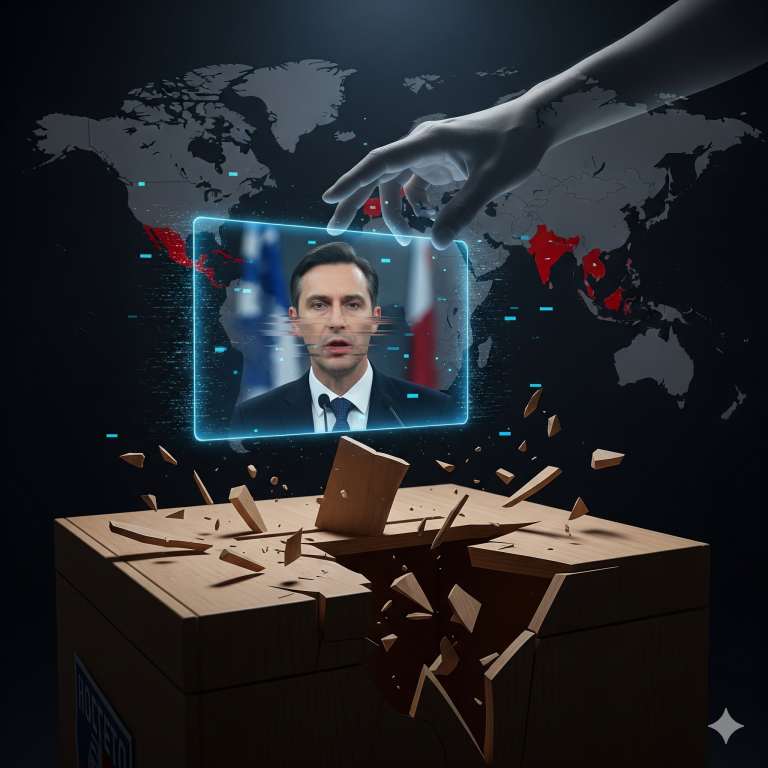
How Economic Changes Shape Politics Around the World

The global economy is constantly changing, and these shifts have a big impact on politics everywhere. When economies grow, governments often gain public support, but during downturns, leaders face pressure and criticism. Rising inflation, job losses, or economic crises can lead to protests and even political instability.
Trade policies also play a major role. Countries that depend on imports and exports adjust their political strategies based on global markets. For example, if a major trade partner raises tariffs, governments must respond to protect businesses and workers.
Technology and automation are also changing economies, sometimes leaving workers behind. When industries disappear, people demand new policies to help them adjust. This can lead to new laws, leadership changes, or even the rise of new political movements.
In short, economic changes shape politics by influencing government decisions, voter behavior, and international relations, making the economy one of the most powerful forces in politics today.
Winners and Losers: Who Benefits from Global Economic Shifts?

Global economic shifts create both winners and losers. Some countries thrive as industries grow, while others struggle as jobs disappear. Nations with strong technology, innovation, and energy sectors often benefit, as they attract investments and create new opportunities. Countries with rich natural resources, like oil or rare minerals, may also profit—if they manage them well.
On the other hand, nations that rely heavily on outdated industries or cheap labor may suffer. Factories close, wages stagnate, and unemployment rises. Workers in traditional manufacturing often face the hardest challenges as companies move operations to places with lower costs.
Even within a single country, the effects are uneven. Wealthy investors and big corporations tend to benefit the most, while low-income workers and small businesses often struggle. Governments play a key role in managing these shifts—through policies, education, and innovation—to help people adapt and succeed in the changing global economy.
The Rise of New Superpowers: Who’s Leading the Global Economy?

The global economy is shifting, and new superpowers are emerging. For decades, the United States and Europe dominated world trade and finance. But now, countries like China, India, and Brazil are taking center stage. China’s rapid industrial growth, India’s booming tech industry, and Brazil’s rich natural resources are making them powerful players in global markets.
Technology and trade agreements also play a big role. Many companies are moving operations to countries with cheaper labor and strong digital advancements. As a result, nations that invest in innovation and infrastructure are climbing the economic ladder fast.
This shift isn’t just about money—it affects politics too. As new leaders in the global economy rise, they gain more influence in international decisions. The question is: Will these changes lead to cooperation or competition? The next decade will shape the future of global power.
Jobs, Prices, and Power: How the Economy Affects Everyday Life

The economy isn’t just about big corporations and government policies—it affects all of us every day. When the economy is strong, jobs are easier to find, wages go up, and people can afford more. But when things slow down, companies cut jobs, and prices for basic needs like food and housing rise, making life harder.
Inflation, for example, reduces the value of money, so your paycheck doesn’t stretch as far. Meanwhile, shifts in global trade can move jobs overseas or bring new industries to different regions, changing the job market. Governments try to control these ups and downs through policies, but not everyone benefits equally.
Ultimately, economic changes shape power—who has opportunities, who struggles, and who makes the big decisions. Understanding these shifts helps people make informed choices, whether voting, managing money, or planning for the future. The economy isn’t distant—it’s personal.
Trade Wars and Alliances: How Countries Compete for Wealth

In today’s world, countries are constantly competing to grow their economies. Some nations form alliances, making trade easier and benefiting from each other’s strengths. Others engage in trade wars, imposing tariffs and restrictions to protect their own industries. These battles over wealth can shape the global economy in major ways.
For example, when two large economies like the U.S. and China impose tariffs on each other’s goods, businesses and consumers feel the impact. Prices go up, supply chains are disrupted, and smaller countries often get caught in the middle. On the other hand, trade alliances like the European Union or regional free trade agreements help members grow by lowering trade barriers.
The competition for economic power affects jobs, innovation, and even political relationships. As global markets shift, countries must decide whether to collaborate or compete—and the choices they make will shape the future of the world economy.
Technology and Money: How Innovation is Changing the Economy

Technology is reshaping the global economy faster than ever. From artificial intelligence to blockchain and automation, innovation is changing how businesses operate, how people work, and how money moves. Digital currencies like Bitcoin and central bank digital currencies (CBDCs) are transforming finance, making transactions faster and reducing the need for traditional banks.
Automation and AI are also replacing some jobs while creating new ones, forcing workers to adapt. Tech companies are growing more powerful, influencing markets and even politics. E-commerce and digital payments have made it easier to buy and sell worldwide, blurring the lines between local and global economies.
Governments now struggle to regulate these rapid changes, raising questions about job security, privacy, and economic fairness. As technology continues to evolve, nations must adapt their policies to ensure innovation benefits everyone—not just big corporations and the wealthy.
The Future of Work: Will Automation Help or Hurt Workers?

As technology advances, automation is changing the way we work. Many fear that robots and AI will take jobs away from workers, leaving them unemployed. While it’s true that some repetitive tasks are being replaced by machines, automation can also create new opportunities.
For example, AI can handle boring, routine tasks, allowing workers to focus on more creative and meaningful jobs. It can also boost productivity, making businesses more successful and, in turn, creating more jobs. However, this shift requires workers to adapt by learning new skills. Governments and companies must invest in retraining programs to help people transition into new roles.
In the long run, automation can benefit workers—if it’s managed well. If not, it could lead to job losses and economic inequality. The key is to balance technology with policies that support workers and ensure fair opportunities for everyone.
Economic Crises and Political Turmoil: What History Teaches Us

Throughout history, economic crises have often led to political turmoil, showing us how closely the economy and politics are connected. When economies face deep problems like recessions or financial crashes, people can lose trust in their governments. They may protest or demand change, leading to instability. The Great Depression of the 1930s is a good example, where widespread unemployment and poverty led to political shifts, with some countries turning to extreme forms of government. Similarly, the 2008 global financial crisis sparked anger and political movements in many countries, challenging existing political systems. What history teaches us is that when people feel the pain of economic collapse, they look for new solutions, often in the form of political change. So, economic struggles are not just about money—they can shape the political landscape for years to come, affecting governments, societies, and the future of nations.
The Rich, the Poor, and the Middle Class: Who Pays the Price?

In a world where the economy is rapidly changing, the rich, the poor, and the middle class are all feeling the effects differently. For the wealthy, economic shifts often mean more opportunities to invest and grow their wealth, sometimes even benefiting from global market changes. However, the middle class, which is typically more dependent on stable jobs and wages, may struggle with rising costs of living and uncertain job markets. The poor, on the other hand, often bear the heaviest burden, facing increased unemployment, limited access to basic needs, and higher living costs, making it even harder to improve their situation. As global economies shift, it’s clear that the most vulnerable are at risk of falling further behind, while those with power and resources have the ability to adapt. Ultimately, the balance of who pays the price depends on how governments and businesses respond to these changes.
Can Governments Keep Up? Policies for a Changing Economy

As the global economy continues to evolve, governments face significant challenges in keeping up with the rapid changes. New technologies, shifting trade patterns, and changing work environments all require smart, adaptable policies. To stay ahead, governments must be proactive, rather than reactive. This means investing in education and skills training to prepare workers for future jobs, supporting industries that drive innovation, and making sure the economy remains inclusive for everyone. Governments will also need to rethink traditional policies around taxes, healthcare, and social safety nets to ensure they work in a more digital, automated world. It’s clear that in a rapidly changing economy, policies cannot be static; they need to evolve just as quickly as the economy itself. Ultimately, the ability of governments to keep up will determine how well societies can adapt to and thrive in a future that looks very different from today.



